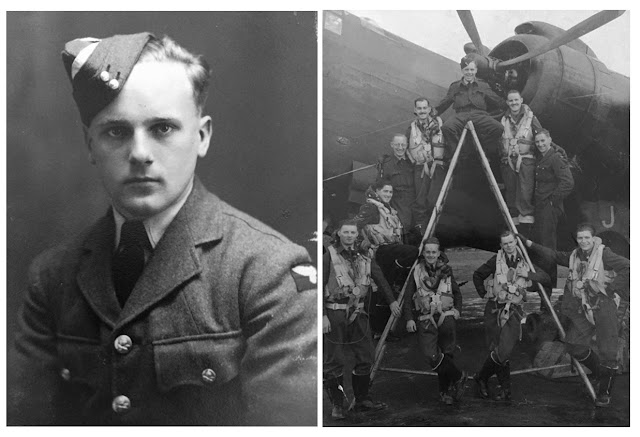Reader Enquiry
I received an email from Mrs Margaret Williams, who writes… “I was surprised to learn that a German had been buried in St.
Hilary’s Church, Killay, during the wartime years of 1939/45. I am extremely
interested in hearing the reasons for this and the whole story relating to this
event”
Yes, there was a German, Kurt Brand buried
at St. Hilary’s, Killay. We have to turn the hands of time back to 1943, 16th
February, which was the last night that Swansea was bombed during the war. On
this night 32 HE and numerous incendiary bombs were dropped, and there were 34
civilian deaths. According to German sources, the Luftwaffe dispatched 37 Dornier Do 217 (pictured above),
each aircraft had a crew of 4. The squadron took off from Eindhoven, Holland,
refuelling at Evreux, France. At the same time, in Swansea, 125 Squadron RAF
were based at the newly constructed in June 1941, RAF Fairwood Common.
The squadron received the first warnings of the Luftwaffe attack and
scrambled Beaufighter aircrafts (pictured above). One of the Dornier
Do 217 was shot down in flames crashing at around 22.25 into
the sea off Port Eynon. There were no survivors. The particular aircraft in
question was crewed by Pilot Gunther Hubenthal;
Wireless Operator Karl Hochmuth; Flight
Engineer Hans Krause and Observer Kurt Brand. On 25th April 1943, the badly decomposed
body of the German airman was washed ashore at Rhossili, and later being identified
as Kurt Brand. A death certificate was issued on the 27th
April. The information from the certificate states that the cause of death
was “Due to War Operations”. Other information gleaned from
the certificate gives his occupation as German Airman and his service number as
58213/184. A copy of his death certificate will be located in the church.
Interestingly the information that I have found regarding Second World War
German dog tags, indicates that the only information etched is the wearer’s
service number. Kurt Brand’s military funeral
took place on 28th April at St. Hilary’s Church, Killay. The funeral was
conducted by a RAFVR Padre H.S. J. Harries. His
name, is found in church’s burial registrar, Page 26, burial No.204. These
registrars are to be located in the West Glamorgan Archive Service, Civil
Centre. He was buried alongside the church hall, away from the Allied Airmen.
Today, there is no indication as to where he was buried for 20 years. St.
Hilary’s, the closest graveyard to RAF Fairwood, is the
final resting place of RAF service men from many other countries. During March
1963, following an agreement made between the British and German
governments, Brand’s remains were exhumed
re-interred at the Cannock Chase German Military Cemetery, Staffordshire.
All the other men on board the plane were never found, the sea off Gower
remains their final resting place.
Copyright – The Bay Magazine – June 2016



Comments
Post a Comment